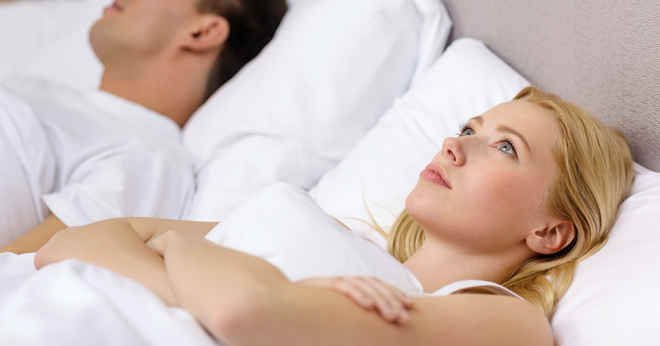
Why do we need sleep? Well, as soon as you close your eyes and drift off to the Land of Nod, your body enters a heightened anabolic state, which allows for muscle rejuvenation, memory retention, mood regulation and a whole host of other restorative processes. Basically, sleep is like a miracle cure. This is why you feel groggy, fatigued and not as sharp when you don’t get enough sleep. Sleep deprivation can cause everything from irritability to economic risk taking and even heart disease. Now, science shows that having trouble sleeping may get worse with age.
In our waking life, our brains are rapid firing in every direction – like the Battle of Endor in Return of the Jedi. But when we enter a deep sleep, all that action slows down, the dust of the day settles, and all is quiet, save for a few firing synapses. This is the magic hour – when our anabolic actions kick in. Yet, more and more studies are showing that our ability to fall into these deep stages of sleep starts to wane with age. While younger people enter these deep stages of sleep naturally and frequently – older individuals enter them infrequently and abruptly.
This could explain a lot of things. It could explain why elderly individuals are lighter sleepers. It could also explain why older individuals have trouble with word retrieval and holding on to short term memories. How many times have you told grandma that her glasses aren’t lost – they’re on her head! According to another study, sleep deprivation also deprives the brain’s ability to store memories. When we don’t enter that deep sleep stage, our short-term memories simply get taped over by new short-term memories – kind of like that VHS tape of your 8th birthday.
When it comes down to it, sleep is as essential as oxygen. Even the oldest and simplest species of fauna sleep – a study done at Penn State showed that earthworms have unique molecules and genes that control sleep. Another research report shows that plankton can suffer from jet lag. And researchers at Harvard University found a virtual on/off switch for sleep in mice. Humans, it turns out, have a similar cellular structure that controls sleep, and those cells start to vanish as we get long in the tooth – according to a large scientific analysis.
But there are a number of other factors that may be causing sleeplessness as in our golden years – the autumn and winter of our life. These factors include medical illnesses, medications and a disruption of the natural circadian rhythms, which is sort of like an internal clock that tells our brain that it is time to sleep and wake up. It should also be noted that one of the biggest fallacies regarding sleep and age is that older people don’t need as much sleep, but this just isn’t true. In order to avoid impairment, you need at least eight hours of sleep – no matter what age you are.
Not surprisingly, a common cause of sleep deprivation in the elderly is sleep apnea. Age is already a risk factor for the disorder, so combine a natural decrease in the ability to enter deep states of sleep with sleep apnea and you have a potential disaster on your hands. Just recently, a major study proved that CPAP treatment is incredibly effective at treating sleep apnea. It reduces blood pressure and increases quality of life. On top of undergoing CPAP therapy, there are a number of other things you can do to get more sleep, like stay away from caffeine before bedtime and move those daytime naps to earlier in the day. You may not realize it, but the fountain of youth may only be forty winks away.
Source: “Why People Wake Up Early.” Business Insider. October 7th 2014.










